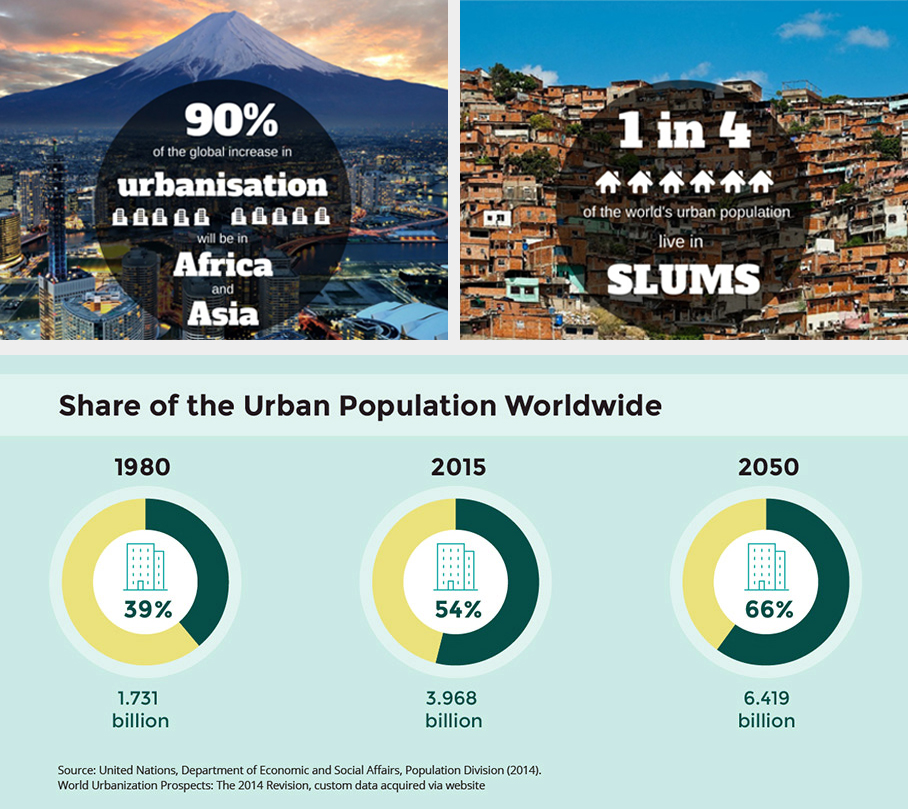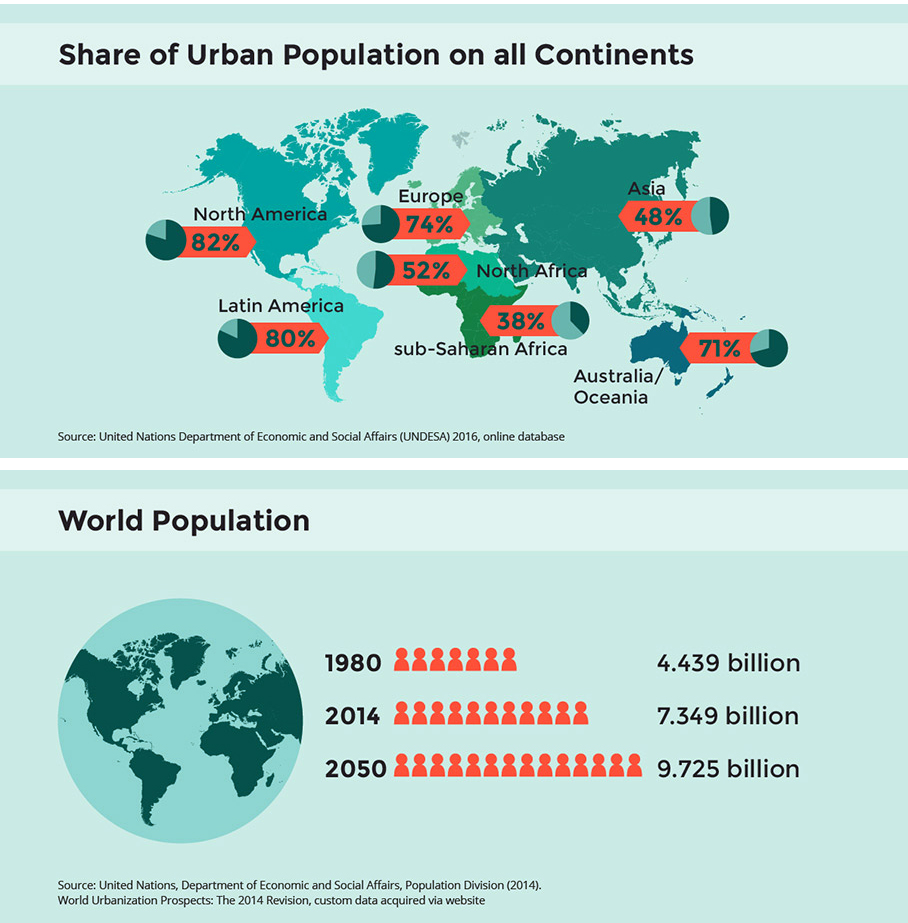Writing styles > Opinion-based
Cause and effect essays look at the reasons (or causes) for something, then discuss the results (or effects). The language of cause and effect (أسباب و نتائج) is important in academic writing because it helps answer the question: Why?
Urbanisation

əːb(ə)nʌɪˈzeɪʃ(ə)n [noun]
— the process by which more and more people leave the countryside to live in cities.
Urbanisation and the future of cities (4:09):
Source: TED (2013). Urbanisation and the future of cities.
Remember: press “CC” to turn “Subtitles” on
Urbanisation, background reading
Urbanisation, comprehension questions
Model Outline/Essay

Urbanisation
The term urbanisation began appearing in print as far back as the 1880s, demonstrating that it is not a modern phenomenon. It can be defined as: ‘a population shift from rural to urban areas’.
Urbanisation began during the industrial revolution, when workers moved towards manufacturing centres in cities. As agricultural jobs became less common with the introduction of new machines, people migrated to cities in search of work. This migration still happens today, especially in developing countries.
Many people move into cities for the economic opportunities. Businesses, which provide employment, are more concentrated in urban areas. In cities, money, services, wealth and opportunities are centralised. Therefore, living in the city can provide many advantages. However, there may be stress, increased cost of living and social isolation too.
In some parts of the world, the rural poor may have little power or employment opportunities. They are often forced to migrate to cities, just as people did in the 18th and 19th centuries.
Unplanned migration often leads to the growth of slums and mega-slums; areas of overcrowded and squalid conditions, where there is generally a lack of sanitation. While some countries have reduced the number of people living in slums, in other regions numbers have grown because of population increases. Africa now has the highest rate of slum dwellers in the world.
Critics of unplanned migration and unplanned cities say that sustainable urbanisation is possible. They say that one of the positive effects to come out of urban growth is attention to more creative urban planning and the use of technology to improve living standards in cities.
